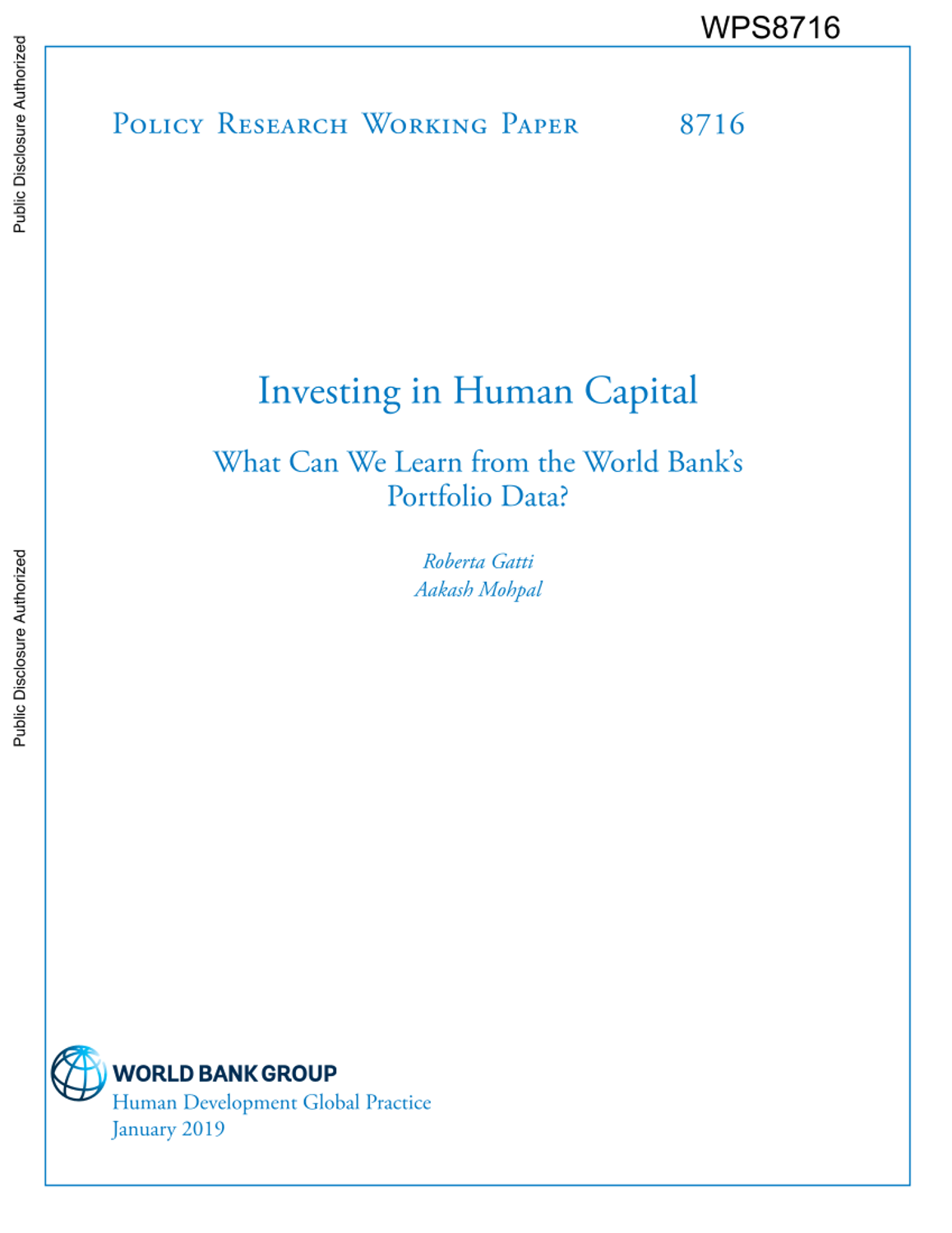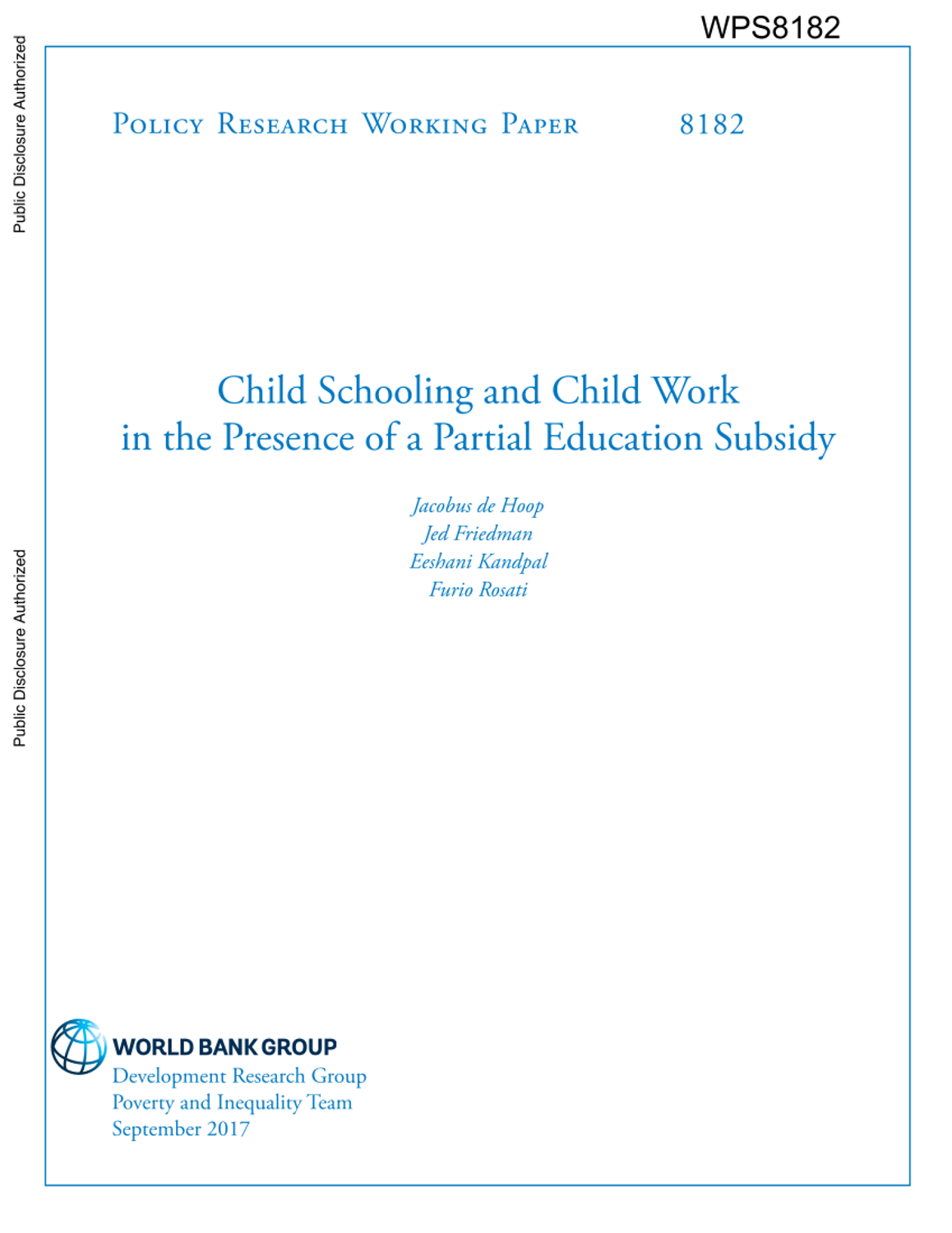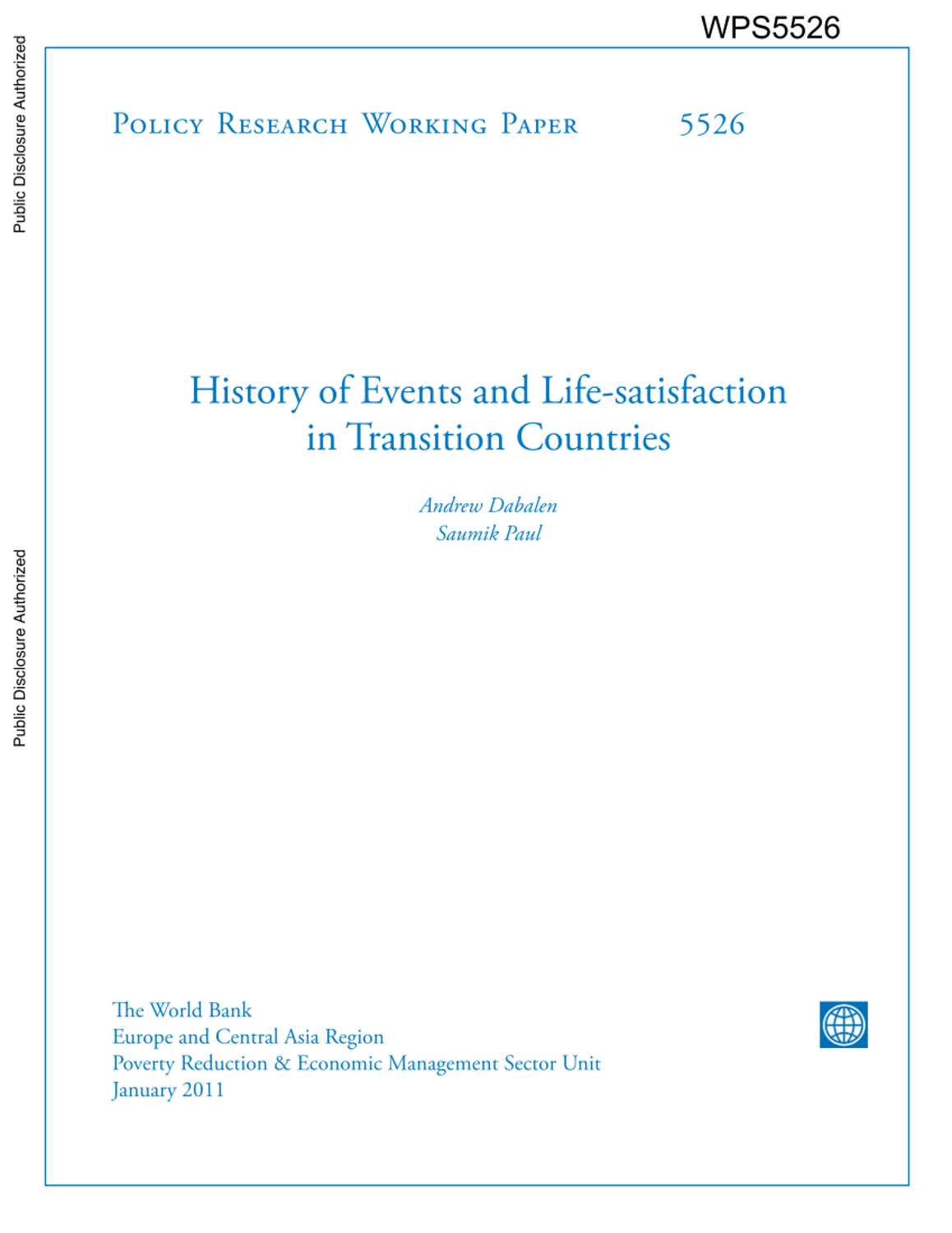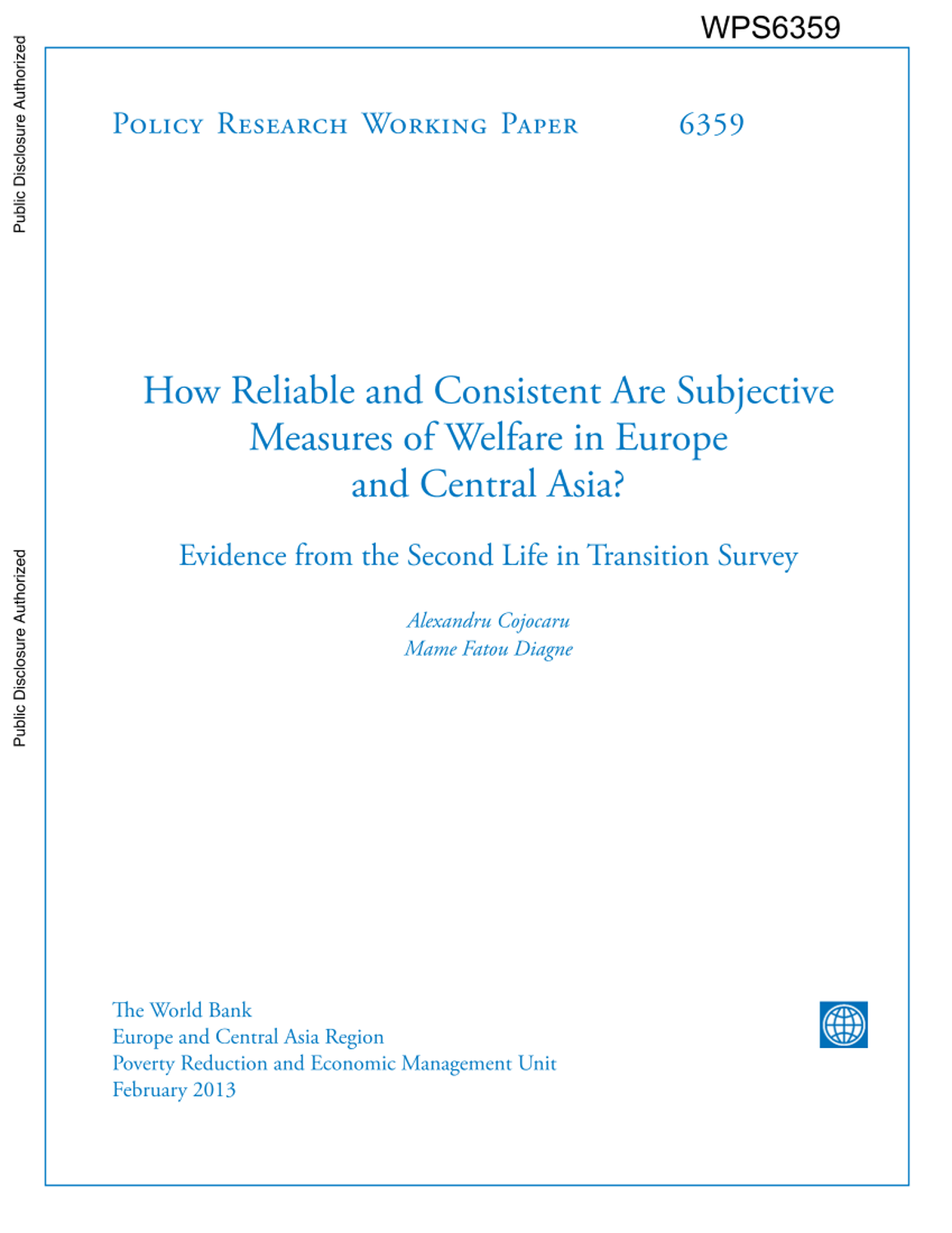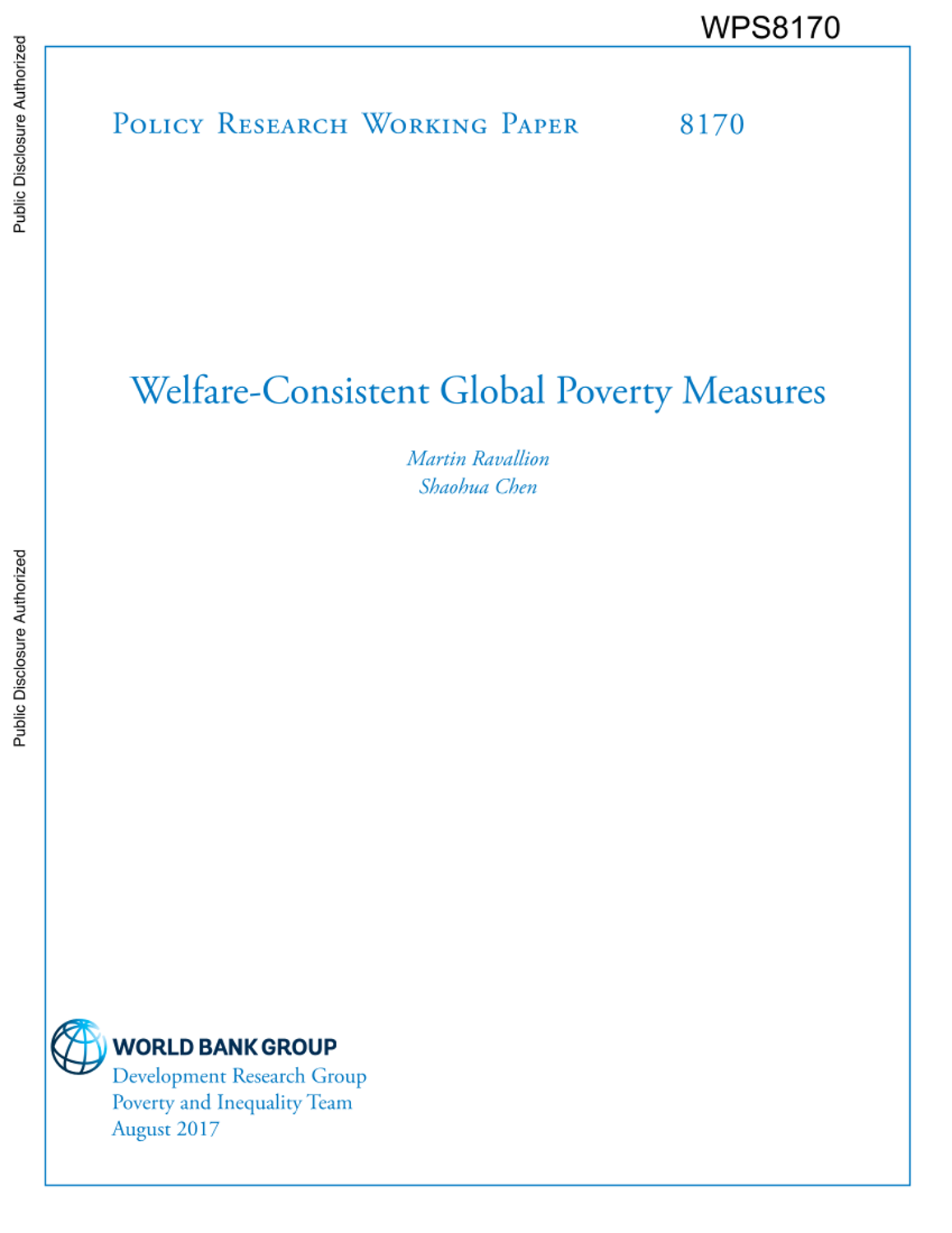단행본World Bank Policy Research Working Paper 8716
Investing in human capital: what can we laarn from the World Bank's portfolio data?
- 청구기호
- WPS 8716
- 발행사항
- United States : World Bank, 2019
- 형태사항
- 33 p. :. PDF file ;. 5.62 MB
- 분류기호
- 듀이십진분류법->WPS
소장정보
| 위치 | 등록번호 | 청구기호 / 출력 | 상태 | 반납예정일 |
|---|---|---|---|---|
이용 가능 (1) | ||||
| E0003304 | 대출가능 | - | ||
이용 가능 (1)
- 등록번호
- E0003304
- 상태/반납예정일
- 대출가능
- -
- 위치/청구기호(출력)
책 소개
This paper compiles project-level data from the World Bank's lending history to describe patterns and the composition of its portfolio. The paper focuses particularly on the effect of countries' transition from International Development Association to International Bank for Reconstruction and Development status, which marks the point when countries start borrowing at near market rates, on lending for human development sectors (education, health and social protection). Using country and year fixed effects, which account for unobservable country characteristics (for example, national priorities) and time effects (for example, market interest rates), the paper finds that human development lending decreases when countries graduate from the International Development Association. The average difference in the binary indicator of lending for any sector is 27 percent while it is 60 percent for human development sectors. The share of human development lending (lending by human development Global Practices over total lending) is also 6.9 percentage points (30 percent) lower. This decline in human development lending in International Bank for Reconstruction and Development countries is accompanied by a greater use of budget support. The results are robust to controlling for non-World Bank aid, as well as various alternative specifications and estimation samples.

